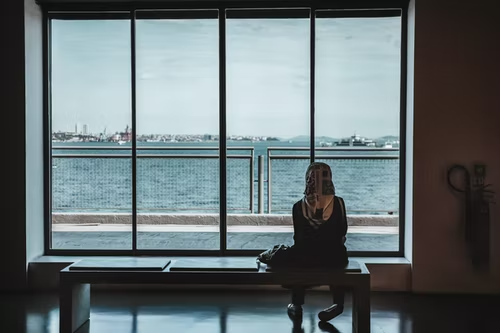10 Good Questions About Depression And Their Answers
Depression is a disorder of mood, so what does it feel like to live with depression? The answers to these 10 questions about depression and their answers will provide you with a better understanding of the condition.
1. What is depression?
Depression is a mood disorder that affects one's ability to feel pleasure and derive satisfaction from life. It's a serious illness that affects millions of people, yet it remains misunderstood by many in the general population. This can lead to negative stereotypes and stigma surrounding those who suffer from depression, which can make it even more difficult for them to get help.
It is not caused by feelings of sadness or grief at a specific point in time, but rather a pervasive sense of hopelessness and despair that lingers over time. It can be sparked by an event or series of events, such as the death of a loved one or divorce. But while these events may trigger depressive symptoms, they are usually not the root cause themselves. Instead, they are often just triggers for an underlying condition that has been building up over time.
2. What is a common misconception about depression?
One of the most common misconceptions about depression is that it’s a sign of weakness. People who are depressed often feel like they need to hide their feelings, even from their friends and family. The stigma surrounding mental illness has led to negative stereotypes, which makes it even more difficult for people to discuss their struggles openly.
Depression isn’t something you can just snap out of. Because it’s a serious medical condition, people who experience clinical depression need professional treatment from trained mental health professionals in order to get better. If you have symptoms of depression, never try to treat yourself without first consulting with your doctor or therapist. Untreated depression can lead to serious consequences such as substance abuse and suicide attempts or completions.
3. What are some of the symptoms of depression?
Depressed people may feel sad, anxious, empty, hopeless, worried, helpless or worthless. Depression can interfere with normal daily activities and cause problems in relationships and at work.
If you have symptoms of depression, talk to your doctor about treatment options. Treatment for depression includes antidepressant medications and psychotherapy (talk therapy). Your doctor may recommend that you try several different medications to find the right one for you.
Antidepressants are not addictive and are not the same as street drugs like cocaine or heroin. They don't make you high or groggy and they typically don't cause withdrawal symptoms when you stop taking them. Most antidepressants take three to five weeks before they start working.
4. How is depression different from grief, sadness, or disappointment?
When you're grieving, you're processing the loss of something or someone important to you, which can be similar to depression but is temporary and has an end-point. Sadness is a normal reaction to a situation that's upsetting, but it doesn't last long. It's a feeling that comes and goes quickly as part of the process of moving on.
Disappointment happens when things don't go your way, like missing out on something or failing to achieve something. Depression can be caused by many different things: genetic factors, childhood trauma, an illness like cancer or heart disease, stress at work or home and the list goes on!
5. How can I help someone who is depressed?
First, tell them that you're there for them and that you care about them. They may feel like they have no one else in their life who cares about them, so hearing that someone does can really help.
Second, don't be afraid to ask questions—you might not know what's going on in your head, but asking questions will show that you're interested and trying to understand. You can also let them know if they start talking about something that makes you uncomfortable or that you don't want to talk about (like suicide), so they know they can trust you with those kinds of things without fear of judgment or shame.
Thirdly, be patient! It might take some time for them to open up about what's going on with them emotionally—you'll have better results if you just listen when they do start talking. Don't push too hard or pressure them into sharing more than they're comfortable sharing (or even at all).
6. Why does it seem like some people get depressed more often than others?
A person's risk of depression is heavily influenced by their genes, but it's also affected by environmental factors.
Genes have a very strong influence on whether or not you get depressed, but environmental factors are also important.
If you've ever wondered why some people seem to suffer from more depression than others, it could all be down to their genes. In fact, scientists have found that depression is strongly influenced by genetics — a person's genetic makeup can play an important role in whether or not they develop the condition. However, it's important to remember that there are many other factors involved as well.
There are two main types of genes associated with depression: those that code for neurotransmitters and those that code for something called cytokines. Neurotransmitters are chemicals produced by nerve cells (neurons) that allow them to communicate with one another; cytokines are proteins released by immune cells that help them signal infection or injury within the body.
Neurotransmitter genes may predispose people towards depression because they make it difficult for certain neurotransmitters (such as serotonin) to function properly in the brain.
7. Can anyone get depressed? If so, who?
Anyone at any age — women, men, teens, and children — can get depression. But it's more likely to happen as you get older.
Women are twice as likely to develop depression as men are. Women are also more likely than men to have repeated episodes of depression over time or get depressed again after they've gone through treatment.
Most people with depression will experience only one episode in their lifetime, but some people may have more than one episode over their lifetime.
Depression is more common among young people ages 15-24 than any other age group; however, it can occur at any age.
8. How long does it take for someone to get better after they're diagnosed with depression?
The answer to this question depends on the severity of the depression and how long it has been present. Depression can come on suddenly and be severe, or it can develop gradually over time. The more severe or chronic your depression is, the longer it will take to recover.
If your depression is mild or moderate in nature, you may begin to feel better within a few weeks or months. If your depression is more severe or chronic, it might take longer for your symptoms to subside. In some cases, people with severe depression may require treatment for many years before they feel back to normal.
In addition to the length of time it takes for someone to recover from depression, there's also a wide range of individual responses to treatment. Some people respond very quickly while others may need additional treatment after initial responses wear off over time.
9. What causes depression? Is there a cure for it? Are there other treatments besides medication?
There are many different causes for depression, including genetics, the environment, personality traits, and life experiences. Sometimes it can be caused by a medical condition like hypothyroidism or an underactive pituitary gland.
One of the most common treatments for depression is medication. Although there are many different medications to treat depression, they all work in different ways and have varying side effects. For example, some medications affect serotonin levels in the brain while others affect norepinephrine levels in the brain; some medications have side effects like weight gain while others have side effects like drowsiness and dry mouth; some medications are used only if other treatments haven't been effective in treating your symptoms.
There are also non-medical treatments for depression like therapy (talk therapy) or supportive counseling (listening). These therapies help you learn how to deal with stressors in your life so they don't cause you more distress than necessary which can lead to more depressive episodes down the road.
10. What should I do if I think someone I know is depressed or suicidal?
If you think someone you know is depressed or suicidal, the first thing to do is talk to them. It's important to let them know that you're concerned about them and that you want to help. If they don't open up to you, try again later.
If they are open to your questions, you can ask if they're thinking about hurting themselves. If so, suggest getting professional help immediately. You can offer to go with them or help make an appointment for them at a local clinic or hospital.
However, if they're not thinking about suicide but are still struggling with depression, encourage them to get professional help as well. Depression can be treated with therapy or medication, and it's important for people who suffer from depression to get treatment so that they can feel better and get back on track with their lives.
If you are experiencing the symptoms described in this article, please take the time to talk to a trained medical professional. You don't have to go through this alone.
For more helpful and informative insights.





